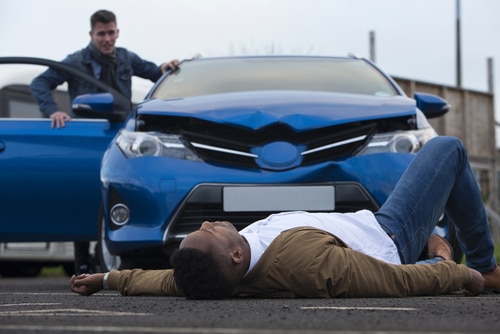
Pedestrian Accidents On The Rise During Summer Months
With more discretionary travel time for vacations, festivals, road trips, summer get-togethers, and outdoor exercising, mixed with more drivers and pedestrians seen with the cell phone’s iconic hold, pedestrian accidents often see a hike in the summer months creating havoc on the roadways and lifelong personal injuries. Alarming statistics from the Governors Highway Safety Association report says that a pedestrian is killed every other hour with an expected 10 percent increase in pedestrian fatalities during summer months.
Drivers Leave Little Room For Pedestrians To Avoid Accidents
Drivers cause most pedestrian accidents and often there can be more than one factor contributing to it. Some common driver errors causing pedestrian injury include the following:
- Inexperienced or New Drivers – The 100 days between Memorial Day and Labor Day are the deadliest of the year for teen drivers, a time when the average number of fatal teen driver crashes climbs 15 percent compared to the rest of the year, AAA says.
- Speeding – Fatal crashes occur more frequently during summer months especially in work zones where cars are speeding and pedestrian walkways may be rerouted to different locations.
- Driving Under the Influence of Drugs or Alcohol – Michigan drunk or drugged driving is more common during summer months. Drinking and driving don’t mix well together as drunk driving remains one of the greatest contributors to fatal and non-fatal traffic accidents in the United States. Those who choose to drive impaired have poorer decision-making skills and slower reaction time and are more likely to engage in other unsafe behaviors while behind the wheel.
- Distracted Driving – Several recent studies have shown that people who are distracted by things like their phones when driving (or walking) have slower reaction times and pay less attention to their surroundings.
Michigan Pedestrians Can Take Steps To Ensure Their Own Safety
With more pedestrians covering the state this summer, there are some easy steps that can be taken to safely walk while in the presence of moving cars. Wearing bright clothing or carrying a flashlight at night, staying alert and crossing at crosswalks, and not becoming distracted by cellphones are just some of the things that the National Highway Traffic Safety Administration recommends from the following list:
- Avoid dark clothing, especially if traveling at night. Bright, especially fluorescent, clothing will ensure you visibility in the day.
- Avoid darting out across a road or crossing from between two vehicles. Cross at crosswalks or other places on the road where drivers expect to see pedestrians.
- Avoid using alcohol and drugs.
- Avoid messing around with distractions like phones or radios.
- Never assume a driver sees you or is going to obey traffic laws. Be vigilant and alert about your surroundings.
- Reflective clothing and/or carrying a flashlight is highly encouraged at night.
- Walk on a sidewalk if available, and if not, walk on the shoulder, facing traffic. Stay off of freeways, restricted-access highways and other pedestrian-prohibited roadways.
In Michigan, pedestrians are entitled to Personal Injury Protection (PIP) benefits, also known as first-party benefits, under the Michigan No-Fault Law. Pedestrians involved in accidents with motorcycles are an exception to this rule, as motorcycles are not considered “motor vehicles” under the law.
Contact Us Now About Your Pedestrian Accident
Working with insurance companies to ensure you get the compensation you deserve can be frustrating and confusing. We can help. Please call The Lee Steinberg Law Firm and speak to our pedestrian accident attorneys at 1-800-LEE-FREE (1-800-533-3733) or fill out the Free Case Evaluation Form. And remember, you pay nothing until we settle your pedestrian accident case.
